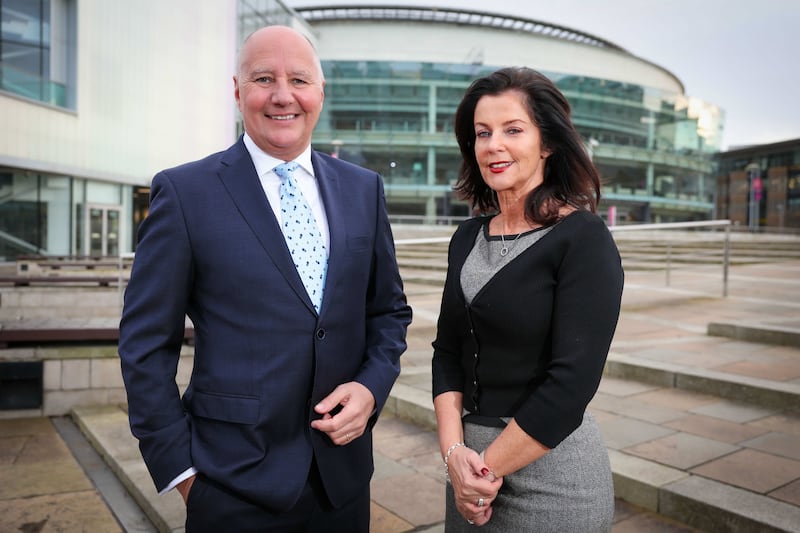THAT digital skills are vital to life in the modern world is a given.
Take our computers or smartphones away for an hour and most of us start to break out in a cold sweat.
But that’s not the case for everyone in Northern Ireland, according to the findings of a new report commissioned by the Department of Finance Digital Transformation Service, in partnership with BT.
The Baseline of Digital Inclusion in Northern Ireland, highlighted that a large portion of the population are not part of the digital revolution, with around one third of working age people here having low or no digital skills.
That equates to around 378,000 people who are currently unable to book a holiday, pay their car tax or even stream music online. Take the population as whole and you will find we’re lagging behind other parts of the UK - nearly 19 per cent of people here have never used the internet.
In the SME and third sector world, the picture is similar with 38 per cent of small businesses and 49 per cent of charities lacking in basic digital skills.
These numbers tell a story of a society in urgent need of developing its online skills to keep up with the fast-changing digital world and BT is committed to helping them do just that.
We, alongside Government partners and a host of other organisations throughout the region, have already travelled far on the journey to promote digital inclusion, and now we’re ready to ramp up that support in partnership with others.
We want to create holistic, sustainable and ongoing digital skills provision, and acting upon the research, one of the best ways to do this is to partner to tackle digital inclusion.
Crucially, it calls for a change of mind-set when it comes to why Northern Ireland should improve digital skills for everyone. For example, this can improve and enhance wider objectives such as social inclusion, economic development, tackling poverty, increasing employability, reducing health inequalities and supporting service transformation.
By doing that, and by proving the value of such an approach we can make more informed decisions about interventions which will be of benefit to both society and the economy.
Mark Bennett, digital inclusion manager at the Digital Transformation Service in the Department of Finance, said the report will help inform the development of a targeted programme of support.
“In today’s digital world it can seem as though everything has moved online. The shift to online services, in particular, has changed the way in which people live, work and socialise - but there are still many people who aren’t benefiting from the digital revolution.
“This report and associated research has indicated that there is much good work already going on in Northern Ireland to address the issue, and progress has been made through initiatives such as the Go ON NI Campaign (nidirect.gov.uk/go-on).
"The findings will help Government to target our resources in partnership with the public, private and voluntary sectors to deliver digital inclusion activities and promote the benefits of accessing the internet, and highlighting the convenience of online public services."
He added: "There is a lot to do, but we’ve already come a long way over the last few years and we will continue to provide support and training to encourage everyone in Northern Ireland to gain the skills and confidence to participate in our digital future”.
:: Janet Burns is senior deal architect at BT.
For further news and insights, join our BT Business & Public Sector Network in Northern Ireland LinkedIn group.








